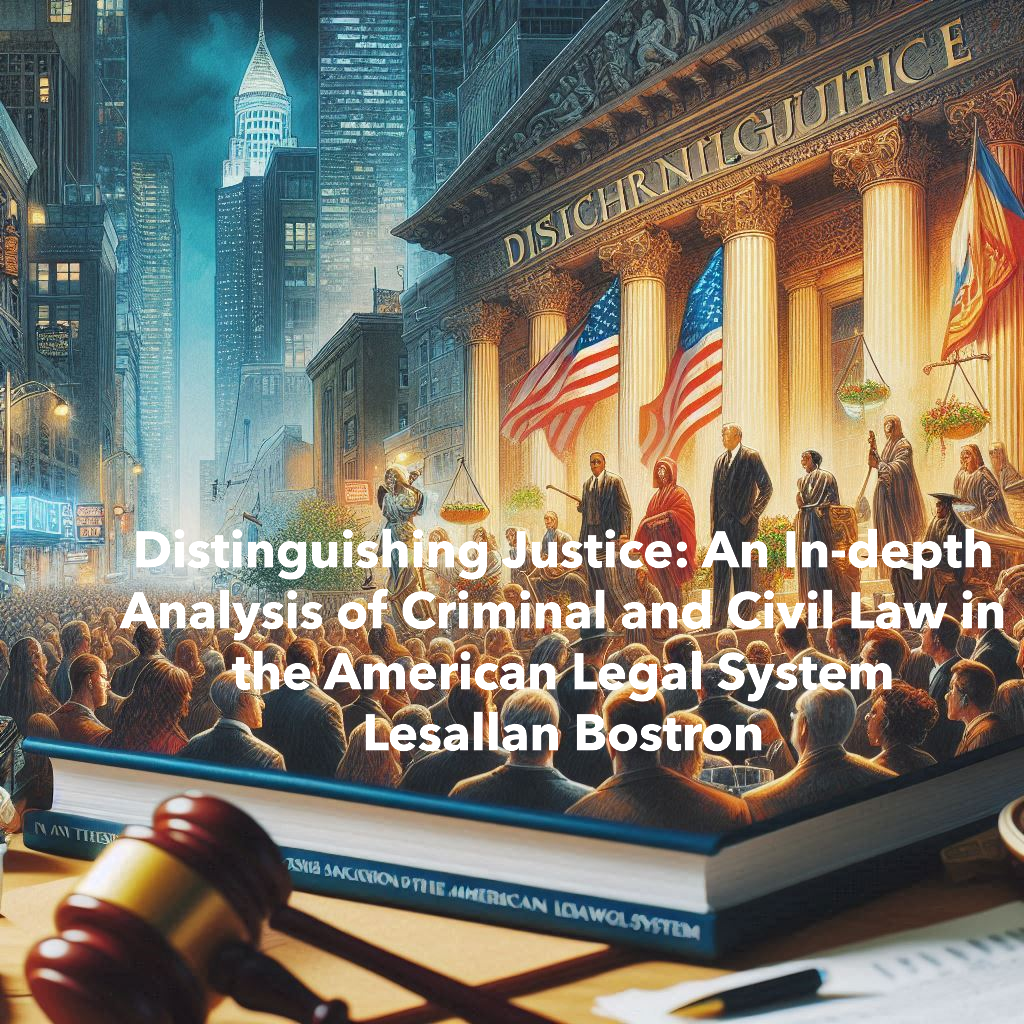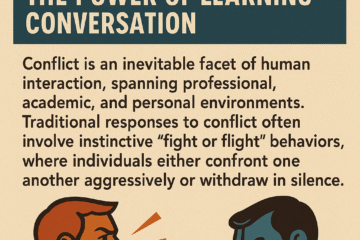Lesallan Bostron – July 4, 2024

Distinguishing Justice: An In-depth Analysis of Criminal and Civil Law in the American Legal System
Lesallan Bostron
Ohio Christian University
CJU1010 Introduction to Justice Systems (ONL24F1)
Professor Quinn
July 4, 2024
Criminal law and civil law are two separate branches of the legal system in the United States, each with its unique functions and guiding principles. Criminal law is concerned with offenses against the state, such as theft, assault, and murder, and aims to punish individuals for these actions. On the other hand, civil law deals with disputes between individuals or organizations and focuses on providing remedies, such as compensation, for any harm caused. Understanding the distinctions between these two branches is crucial for comprehending the American legal system and ensuring justice is served in different legal scenarios.
Criminal Law pertains to behavior that can be construed as an offense against the public, society, or the state, even if the immediate victim is an individual (Legal Information Institute, 2024). Examples of such offenses include murder, assault, theft, and drunken driving (Legal Information Institute, 2024). Criminal cases are initiated by the federal or state government (the prosecution) and are always decided by a jury (Legal Information Institute, 2024). The prosecution must establish the defendant’s guilt “beyond a reasonable doubt” (Legal Information Institute, 2024). Punishment for serious (felony) charges often consists of imprisonment but may also include a fine paid to the government (Legal Information Institute, 2024).
Conversely, civil law deals with behavior that injures an individual or other private party, such as a corporation (Legal Information Institute, 2024). Examples of such injuries include defamation (including libel and slander), breach of contract, negligence resulting in injury or death, and property damage (Legal Information Institute, 2024). Civil cases are initiated by a private party (the plaintiff), and cases are usually decided by a judge (Legal Information Institute, 2024). The plaintiff must establish the defendant’s liability according to the “preponderance of evidence” (Legal Information Institute, 2024). Punishment includes a monetary award and never imprisonment (Legal Information Institute, 2024).
The Fifth Amendment to the U.S. Constitution protects double jeopardy (Legal Information Institute, 2024). This protection ensures that an individual cannot be prosecuted more than once for the same crime (Legal Information Institute, 2024). This protection applies only to criminal cases, so a defendant who was acquitted or convicted of a crime may be sued in a civil lawsuit based on the same conduct (Legal Information Institute, 2024).
CJ: Realities and Challenges by Ruth E. Masters et al. (2021) is a compelling resource that guides students to think critically about the criminal justice system’s daily realities and challenges. This book, published by McGraw Hill in 2021, offers valuable insights into its complexities and encourages readers to engage meaningfully with the subject matter. According to Masters et al. (2021), the book “CJ: Realities and Challenges” (2021) empowers students to think critically about the daily realities and challenges of the criminal justice system. It provides a framework for observing, investigating, understanding, and helping students recognize the myths of the U.S. criminal justice system and gain a greater comprehension of its complexities.
In summary, Protection against double jeopardy: The protection against double jeopardy is found in the Fifth Amendment to the U.S. Constitution. This protection ensures that an individual cannot be prosecuted more than once for the same crime (Legal Information Institute, 2024).
Application of double jeopardy in criminal law vs. civil law: The protection against double jeopardy applies only to criminal cases. This means that a defendant acquitted or convicted of a crime may still be sued in a civil lawsuit based on the same conduct. This is because criminal law and civil law are separate branches of the legal system, each with its procedures and standards of proof (Legal Information Institute, 2024).
This paper’s distinction between criminal law and civil law is a cornerstone of the American legal system. Each serves a unique purpose and operates under different guiding principles. Understanding these differences is crucial for legal professionals and citizens as it helps them navigate the legal landscape more effectively. As a student of justice systems, I find this knowledge invaluable. It deepens my understanding of the spectrum of crimes, their victims, and the concept of victimless crimes. Furthermore, it aligns with my values of wisdom and direction from the Bible, reinforcing the importance of justice and fairness in society. I am grateful for the opportunity to delve into this topic and anticipate applying this knowledge in my future studies and career in justice.
References:
Legal Information Institute. (2024). Criminal law. Cornell Law School. Retrieved July 4, 2024,
from https://www.law.cornell.edu/wex/criminal_law
Legal Information Institute. (2024). Civil law. Cornell Law School. Retrieved July 4, 2024, from
https://www.law.cornell.edu/wex/civil_law
Legal Information Institute. (2024). Double jeopardy. Cornell Law School. Retrieved July 4,
2024, from https://www.law.cornell.edu/wex/double_jeopardy
Masters, R. (2021). CJ: realities and challenges. Mcgraw-Hill Education.



2 Comments
Arvilla Hahn · July 5, 2024 at 9:49 am
Hi my loved one I wish to say that this post is amazing nice written and include approximately all vital infos Id like to peer more posts like this
إرسال سيرتك · July 6, 2024 at 2:29 am
Great work!
Comments are closed.